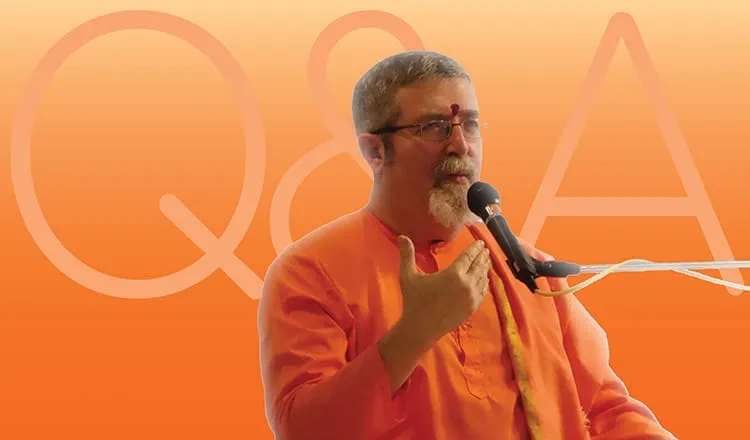Sivananda Bahamas Blog
Expand Your Horizons …
Our Blog
Transcending Duality
Question: How can we transcend duality?
Answer: First of all we have to define what duality is. Duality is our notion that each one of us is an individual conscious being and we are aware of others, or beings or objects that are different from us; this is our experience. There is a conscious subject, which we call the seer, and there are many objects that we are aware of. And there seems to be a difference between the conscious subject, which is us, and the objects that we perceive. This is called duality.

Reality is divided into subject, the conscious observer, and objects, what the observer perceives. Whatever the observer perceives seems to be separate or different from the observer. This type of consciousness or awareness is called awareness of duality.
Then how to overcome duality? In order to overcome duality, we need to question this type of experience. We need to ask ourselves, “Is this experience valid? What proof do we have that this experience is real?” In other words, we need to inquire. We need to investigate into the truthfulness of this experience, to check its validity, to test it. And within the system of Vedanta, or Jnana Yoga, the yoga of knowledge, there is a method of how to inquire into the validity of our experience, this experience of duality. To inquire into the nature of reality as we perceive it, we have the possibility to transcend duality. To transcend duality means to see beyond false appearances, because the yogis teach that the experience of duality is a false appearance. Self- inquiry, or to inquire into the nature of reality as is taught in the system of Jnana Yoga, or yoga of wisdom, we learn to transcend these false appearances of duality and to see reality as it truly is.
Another method which has the same goal is Raja Yoga. In Raja Yoga, we attain the same goal through meditation. Another method through which we can attain the same goal is called Bhakti Yoga. In Bhakti Yoga, we transcend duality through bhakti, through love and devotion. Karma Yoga is a yoga which is the preparation for all the other yogas. It purifies our mind and it purifies our heart, and thus it makes us capable to follow the other yogas. Without Karma Yoga, we will not be able to successfully practice the other yogas, because the other yogas require a pure heart, a heart without selfishness and a pure mind. Therefore, first by purifying the heart and the mind through the long practice of Karma Yoga, and then by following the paths of Bhakti Yoga, the yoga of devotion, Raja Yoga, the yoga of meditation, and Jnana Yoga, the yoga of knowledge, we transcend duality in practice.

Swami Swaroopananda is a senior disciple of Swami Vishnudevananda. A practicing yogi from a very young age, Swami Swaroopananda has dedicated his life to the practice and teaching of yoga. He taught in Yoga Teacher Training Courses around the world and is currently teaching advanced yoga philosophy courses and lectures internationally. He is Director of the Sivananda Ashram Yoga Retreat and acharya (spiritual director) for the Sivananda centers and ashrams in the Bahamas and the Middle East. He is a member of the Board of Directors of the International Sivananda Yoga Vedanta Centres.
Upcoming Courses
Enjoy a delicious vegetarian feast, a reading of the Haggadah, Passover chants, and teachings on Passover’s relationship to yogic principles.
In honor of the Sivananda lineage and Swami Swaroopananda's birthday, we invite all guests, friends, and residents of the ashram to come together for a celebration.
During this special time of year we invite you to join us in celebrating wisdom, love, compassion, and the transcendence of artificial barriers.









One thought on “Transcending Duality”
Michael Chandra Cohen
Please explain how raja yoga and bhakti yoga are able to transcend duality when both are decidedly dualistic. Patanjali the formulter of Raja Yoga, doesn’t even mention nonduality in his text. Instead he posits purusha and prakriti or Self and Nature as two wholly opposing realities. Ramanuja, the only Bhakti that even pays heed to nonduality, posits a nondual with attributes. A nondual Absolute by definition cannot be separated into parts or attributes – space is no different contained in a cup or in the expanse of sky. All other Bhaktis are blatantly and uncompromisingly dualistic.
Further, meditation is an action dependent upon the meditator’s will and effort. We cannot transcendent duality by the results of any action. Ignorance is what keeps us from nonduality and only knowledge can transcend ignorance. Knowledge is not a function of action